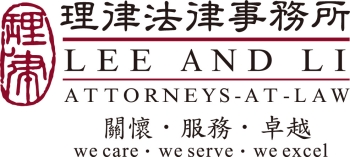In patent disputes, claim construction and a person having ordinary skill in the art (PHOSITA) determination often become the focus of the parties' arguments. In addition to interpreting the patent specifications and the cited prior art references, the court, which is not an expert in the art, must rely on exhibits provided by the parties to assist with the judgment.
Based on the principle of good faith and the doctrine of estoppel, it is common for one party to quote statements made by the other party outside the litigation proceedings as a basis for interpreting the claims or determining the ordinary skill of a PHOSITA. However, legally speaking, statements made outside the litigation proceedings cannot be used as an admission of fact in litigation, and there is doubt as to whether such statements may be used as evidence.
A recent Supreme Administrative Court decision (2018 Pan 163 Administrative Judgment), rendered on 31 March 2018, seems to have reached an affirmative conclusion.
Supreme Administrative Court ruling
The Supreme Administrative Court held that the appellant's Original Exhibits 1, 4 and 5 produced at the litigation proceedings were all unfavourable statements made by the other party (ie, the patentee) in other cases. While they could not be considered an admission of fact in litigation, they remained statements made by the party itself. Thus, as long as they were formally authentic, their content could serve as evidence in the case.
As to the degree of proof of such evidence in relation to the facts to be proved, the courts were required to:
- investigate facts using its own initiative;
- exercise its elucidative power to ensure that the parties conducted appropriate and sufficient debate of the factual and legal issues;
- consider the entire argument and evidence on file;
- determine the facts according to rule of logic and rule of thumb; and
- specify in the written judgment the reasons on which the determination was based.
Otherwise, the judgment would violate the law by failing to provide reasons.
The Supreme Administrative Court further stated that because the patentee and his litigation assistants were familiar with the patented technology, it was reasonable to take their statements about the technical content of the disputed patent as evidence for the court to determine the ordinary skill at the time of patent filing.
At the lower instance of the trial, the appellant (the invalidation petitioner) asserted that the patentee's presentation material submitted in other litigation involving the disputed patent could prove the ordinary skill of a PHOSITA.
However, the patentee argued that such statements in the concerned presentation were made by its litigation assistant only to explain the general mechanical design principles on which the development of the patent was based, and hence the said statement should not be employed as evidence of ordinary skill.
The Supreme Administrative Court concluded that the lower court's judgment did not specify the reasons for its determination on the above issue, and thus the judgment violated the law by failing to provide reasons.
For further information on this topic please contact Hsiu-Ru Chien at Lee and Li Attorneys at Law by telephone (+886 2 2715 3300) or email ([email protected]). The Lee and Li Attorneys at Law website can be accessed at www.leeandli.com.
This article was first published by the International Law Office, a premium online legal update service for major companies and law firms worldwide. Register for a free subscription.



